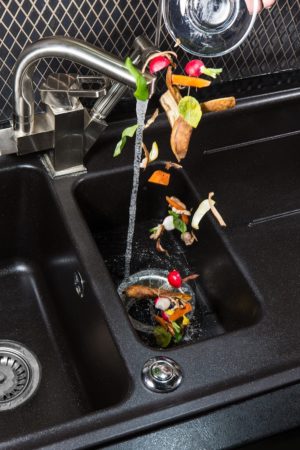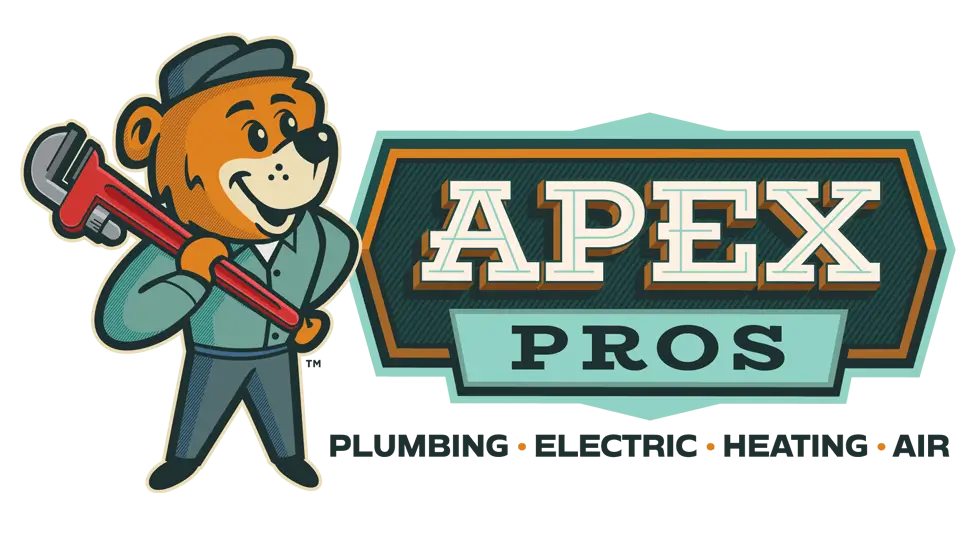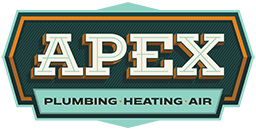
Clogged drains and leaky pipes can be a nightmare to deal with. Clogs will often cause sewage to back up inside of your showers and other drains, which is itself a major headache. Not only that, but a major clog could even result in your sewage line breaking. Should this happen, you could potentially be facing major damage to your home and your yard in addition to a hefty repair bill. The same goes for leaky pipes, which have the potential to cause water damage and lead to mold growth. The best way to avoid these issues is to pay closer attention to what you are putting down your drains and plumbing, which means making sure to avoid these all-too-common bad habits.
1. Rinsing Food and Grease Down Your Kitchen Sink
Grease, fat, and oil are some of the main culprits behind many clogs and plumbing problems. These substances should never be washed down the drain. When you attempt to pour them down your kitchen sink, they can solidify and begin to build up inside of your drains and pipes. Over time, this buildup can begin to slowly obstruct your pipes and eventually lead to blockages.
Some people wrongly assume that it is okay to pour grease or fat down the sink as long as they flush it down with hot water. However, the fact is that no amount of hot water will ever be able to fully flush that grease from your sink all the way through your pipes and out into the sewer main in the street. Somewhere along the way, that grease will cool down enough to harden and stick to your pipes.
When this happens, food particles, toilet paper, and other solid materials can stick to the grease and quickly lead to a blockage in your pipes. For this reason, it is also essential that you make every effort to avoid letting food particles go down your drains as well. The easiest way to avoid this issue is to make sure to fully scrape off your plates before putting them in the sink and also use a sink strainer to catch any leftover bits. You should also avoid rinsing things like coffee grounds down the sink since these can easily clog your pipes.
If you have a dishwasher, you should consider not washing off your plates before you put them in. This will help to avoid food and grease from going down the drain, and it may actually help your dishwasher to clean better. In fact, most manufacturers recommend that you not rinse your dishes before putting them in the dishwasher. This is because modern dishwashers actually detect how dirty dishes are and will often not wash them nearly as thoroughly if they have been rinsed beforehand.
2. Treating Your Garbage Disposal Like It Is a Trash Can
Garbage disposals can be extremely handy. However, many people end up using their garbage disposal as though it is a trash can. When this happens, you could damage both your garbage disposal and your plumbing. All it takes to avoid this issue is to understand what your garbage disposal can and cannot handle.
As with your kitchen sink, there are numerous items that you definitely should not be putting in your garbage disposal. Grease, fat, and oil are obvious substances to avoid putting down the garbage disposal. Additionally, you should also avoid putting any food items that can swell up when wet in the disposal, such as pasta, rice, and oatmeal. Celery and other fibrous foods or hard items like bones, fruit pits, and eggshells can also damage your garbage disposal or lead to clogs. Potato peels are another major issue. Although the garbage disposal can easily pulverize them, the result is a sticky, starchy mass that can easily clog your pipes.
3. Flushing Things Down the Toilet That You Should Not
Your toilet is really only designed to handle waste and toilet paper. Attempting to flush anything other than this down the toilet is a quick way to clog your plumbing. Stuff like cat litter and food are obvious things you should never flush down the toilet. Here are a few other items that you should never flush:
- Paper towels
- Feminine hygiene products
- Diapers
- Baby wipes even if they are marketed as flushable
- Condoms
- Cotton swabs, pads, and other cotton products
- Dental floss
4. Allowing Hair to Go Down the Sink, Shower, or Bathtub
Hair is another major cause of clogged drains. For this reason, try not to let your hair go down the drain. The easiest way to avoid this is to use a hair strainer in your shower or bathtub. Similarly, men who trim their beards or facial hair over the sink should use a strainer or do their trimming over a trash can to avoid hair going down the drain. Typically, the finer trimmings from shaving your face or legs is not an issue and will easily travel through your plumbing. However, longer hairs from your face or head can easily lead to clogs.
5. Using Too Much Chemical Drain Cleaner
Liquid drain cleaner is a handy way to overcome clogged pipes and drains. However, it also contains harsh chemicals that can corrode or otherwise damage your plumbing. For this reason, it should really only ever be used as a last resort. Furthermore, you should always closely follow the manufacturer’s recommendations and never use more than they suggest.
For minor clogs, the first step should always be to use a plunger to see if this can clear the blockage. If you find yourself facing a more severe clog, you are usually better off calling a plumber instead of risking damage to your pipes by using a liquid drain cleaner.
6. Pouring Certain Other Chemicals Down the Drain
In addition to drain cleaner, there are also a number of other household chemicals that you should avoid pouring down the drain since they can cause damage to your pipes. This includes substances like nail polish and nail polish remover, paint and paint thinners, bleach, and certain other cleaning products.
One major mistake many people make is assuming that all of their household cleaning products can be flushed down the drain. However, many of them contain harsh chemicals that can damage your pipes. Therefore, you should always check the back of the bottle to see if your cleaning products are flushable. Alternatively, you could consider switching to more natural cleaning solutions like vinegar.
Paying close attention to what you are putting down your drains is the easiest way to avoid clogs and other plumbing issues. Nevertheless, clogs can still occur even when you are being extremely diligent about what you let go down the drain. If you do find yourself facing a clog in your Columbus home, the professional team at Apex Plumbing, Heating, and Air Pros is available around the clock to help. In addition to drain cleaning and sewer line repair, we also offer a wide range of excavation and plumbing services, including bathroom remodeling, toilet repair, water heater repair, sump pump maintenance, and more. For more information or to schedule an appointment, give us a call today.





